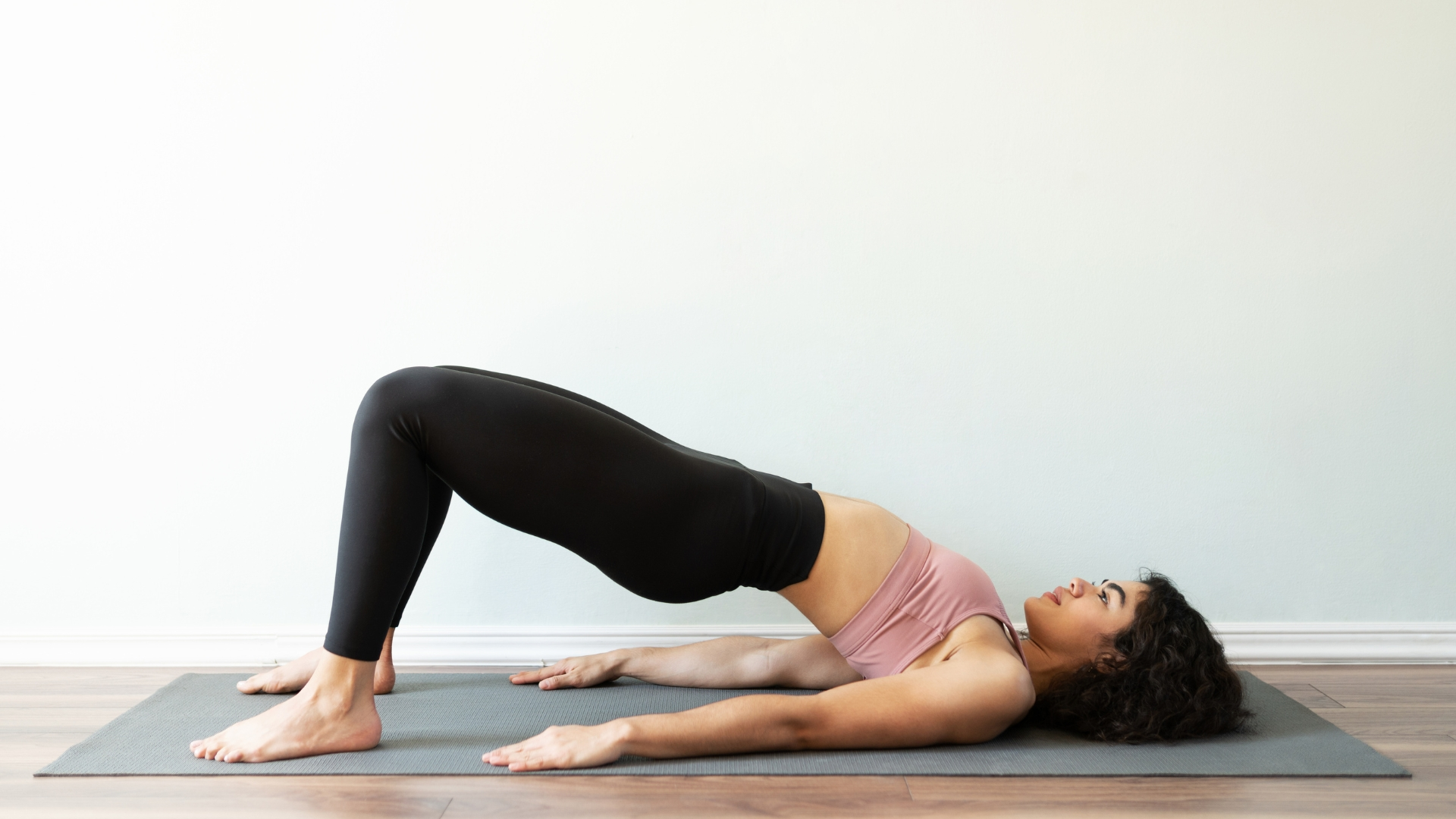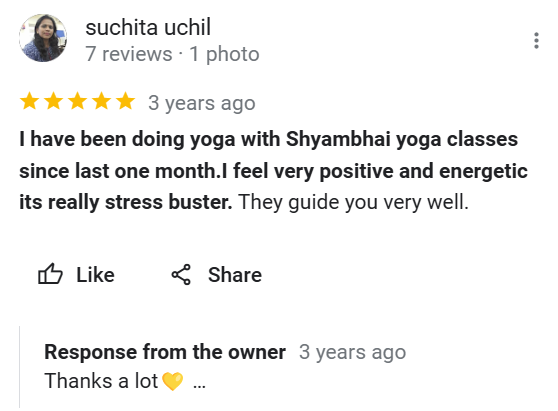Transform Your Mental Health with the Power of Yoga
In today’s fast-paced world, mental health is increasingly becoming a topic of concern. Stress, anxiety, and depression are now everyday struggles for many. Amidst this turmoil, the ancient practice of yoga emerges as a sanctuary of calm and healing, offering profound benefits for the mind and soul. At Shyambhai Yoga, we deeply believe in the transformative power of yoga—not just for the body but also for the mind. Let’s explore how yoga can help you unlock a healthier, happier mental state.
The Connection Between Yoga and Mental Health
Yoga is much more than physical postures; it is a holistic practice that harmonizes the body, mind, and spirit. Rooted in ancient Indian traditions, yoga integrates physical asanas (postures), pranayama (breathing techniques), meditation, and mindfulness. These components work together to foster mental clarity, emotional resilience, and inner peace.

Modern science echoes the ancient wisdom of yoga. Studies consistently show that yoga reduces levels of cortisol, the stress hormone, while increasing endorphins and serotonin, the “feel-good” chemicals. This potent combination makes yoga an effective tool for combating mental health issues like anxiety, depression, and chronic stress.
How Yoga Addresses Mental Health Challenges
1. Stress Reduction
Stress is a major contributor to mental health issues. Yoga helps by promoting relaxation and reducing the body’s stress response. Practices like Hatha Yoga or Restorative Yoga through online yoga classes for stress relief slow down the mind and body, guiding you into a state of relaxation.
- Asana Tip: Try Child’s Pose (Balasana) or Legs-Up-the-Wall Pose (Viparita Karani) to calm your nervous system.
- Pranayama Tip: Practice deep breathing exercises like Nadi Shodhana (alternate nostril breathing) to regulate your stress levels.
2. Managing Anxiety
Yoga encourages mindfulness and focuses on the present moment. This can help break the cycle of anxious thoughts and bring clarity to the mind. Yoga also enhances parasympathetic nervous system activity, which counters the fight-or-flight response that fuels anxiety.
- Asana Tip: Poses like Tree Pose (Vrikshasana) and Warrior Pose (Virabhadrasana) help build focus and stability.
- Pranayama Tip: Use Ujjayi Breathing (Victorious Breath) to create a soothing rhythm for the mind.
3. Alleviating Depression
Depression often involves feelings of hopelessness and a lack of energy. Yoga can help by reactivating the brain’s reward system and improving circulation to the brain. Sun Salutations (Surya Namaskar) are particularly effective in boosting energy and mood.

- Asana Tip: Camel Pose (Ustrasana) and Bridge Pose (Setu Bandhasana) open up the heart and counteract feelings of despair.
- Meditation Tip: Practice gratitude meditation to focus on positive aspects of life.
4. Enhancing Focus and Memory
Yoga’s emphasis on mindfulness improves concentration and cognitive function. Regular practice can enhance memory, decision-making, and problem-solving skills.
- Asana Tip: Eagle Pose (Garudasana) and Dancer’s Pose (Natarajasana) are excellent for sharpening focus.
- Meditation Tip: Engage in guided mindfulness meditation to improve your mental clarity.
5. Promoting Better Sleep
Sleep disturbances are common in those struggling with mental health issues. Practicing Yoga nidra, a deeply restorative practice through online yoga classes for better sleep helps to calm the nervous system and improve sleep quality.
- Routine Tip: Incorporate Yoga Nidra into your evening routine to signal to your body that it’s time to rest.
Find your calm with our latest blog: Top 5 Calming Yoga Poses to Beat Anxiety, start your journey to stress-free living today!
Scientific Insights into Yoga and Mental Health
1. Neuroplasticity and Brain Health
Research from Indian and global studies shows that yoga enhances brain structure and function. Practicing yoga has been associated with increased grey matter volume in areas of the brain responsible for emotional regulation, memory, and learning. The production of brain-derived neurotrophic factor (BDNF), a protein critical for neuron growth and survival, is stimulated through yoga, potentially delaying age-related cognitive decline and reducing the risk of neurodegenerative diseases like Alzheimer’s.
2. Emotional and Psychological Resilience
Yoga combines physical postures (asanas), breathing techniques (pranayama), and meditation (dhyana) to create a mind-body harmony that fosters emotional resilience. Recent Indian studies highlight its role in lowering cortisol levels (the stress hormone) and enhancing gamma-aminobutyric acid (GABA) activity, which alleviates anxiety and improves mood. These physiological changes can significantly benefit individuals dealing with depression, PTSD, and other mental health challenges.
Creating a Yoga Practice for Mental Well-being

At Shyambhai Yoga, we believe that everyone can benefit from yoga, no matter where they are in their mental health journey. Here’s how you can build a practice that works for you:
1. Start Small: Begin with a few minutes of yoga daily. Even five minutes of deep breathing or gentle stretching can make a difference.
2. Be Consistent: Consistency is key. A regular practice, even if it’s short, is more beneficial than sporadic, long sessions.
3. Find a Practice That Suits You: Whether it’s dynamic Vinyasa, calming Restorative Yoga, or meditative Hatha, choose a style that resonates with your needs and energy levels.
4. Seek Guidance: Joining a class or consulting with a qualified instructor, like those at Shyambhai Yoga, ensures that you’re practicing safely and effectively.
5. Integrate Mindfulness: Combine yoga with mindfulness practices like meditation or journaling to enhance its mental health benefits.
Yoga Creates Emotional Balance in Daily Life
One of the most beautiful effects of yoga is how it spills over into everyday situations. The calm you cultivate on the mat helps you respond with patience when life throws challenges your way. Instead of reacting with frustration or worry, yoga teaches you to pause, breathe, and choose a balanced response. Over time, this emotional steadiness strengthens relationships, improves communication, and nurtures a more peaceful state of mind.
Widespread Belief in Yoga’s Health Benefits in India
A comprehensive survey across India found that nearly 12% of the population practices yoga, and a remarkable 91.5% of these practitioners believe that yoga delivers meaningful health benefits—especially in managing conditions like type 2 diabetes
Yoga Builds a Positive Self-Image
Mental health is often tied to how we see ourselves. Yoga gently reminds you that your worth isn’t measured by external achievements or appearances but by the harmony you create within. Each session encourages acceptance of your body and mind as they are in the present moment. This self-compassion builds a healthier self-image and helps reduce negative thought patterns, boosting overall confidence and positivity.
Yoga Encourages Hope and Joy
Beyond stress relief, yoga plants seeds of joy and hope. Through practices like heart-opening postures and gratitude meditations, you start to focus more on what’s going well in life. This shift in perspective makes it easier to find small joys, even during tough times. Many practitioners describe yoga as not just a practice but a reminder that brighter days are always within reach.

Real-Life Transformations with Shyambhai Yoga
At Shyambhai Yoga, we’re proud to witness the transformative journeys of our practitioners as they embrace the power of yoga. Here are a few testimonials from our community, highlighting the profound impact of yoga on their mental and physical well-being:
Suchita Uchil
“I have been doing yoga with Shyambhai Yoga classes for the last one month. I feel very positive and energetic—it’s really a stress buster. They guide you very well.”

Shikha Lal
“Completely enjoying yoga with Shyambhai Yoga classes! I’ve started reaping benefits within a month of practice. It works as a stress buster for me. Happy!”

These personal stories underscore how regular yoga practice under expert guidance can enhance positivity, reduce stress, and restore balance. We celebrate these inspiring transformations and invite everyone to experience similar benefits with Shyambhai Yoga.
Conclusion
Mental health is not just the absence of illness but a state of holistic well-being. Yoga, with its ancient wisdom and scientifically backed benefits, is a beacon of hope for those seeking peace in a chaotic world. Whether you’re battling anxiety, depression, or just looking for a way to manage stress, yoga offers a path to healing and empowerment.
At Shyambhai Yoga, we are passionate about guiding you on this transformative journey. Start small, stay consistent, and watch as yoga brings balance and serenity to your life.
Your mental health matters, and yoga can help you protect it. Join us at Shyambhai Yoga, and take the first step towards a healthier, happier you.
Inquiry
If you have any questions, please feel free to reach out. We’ll be glad to help!

